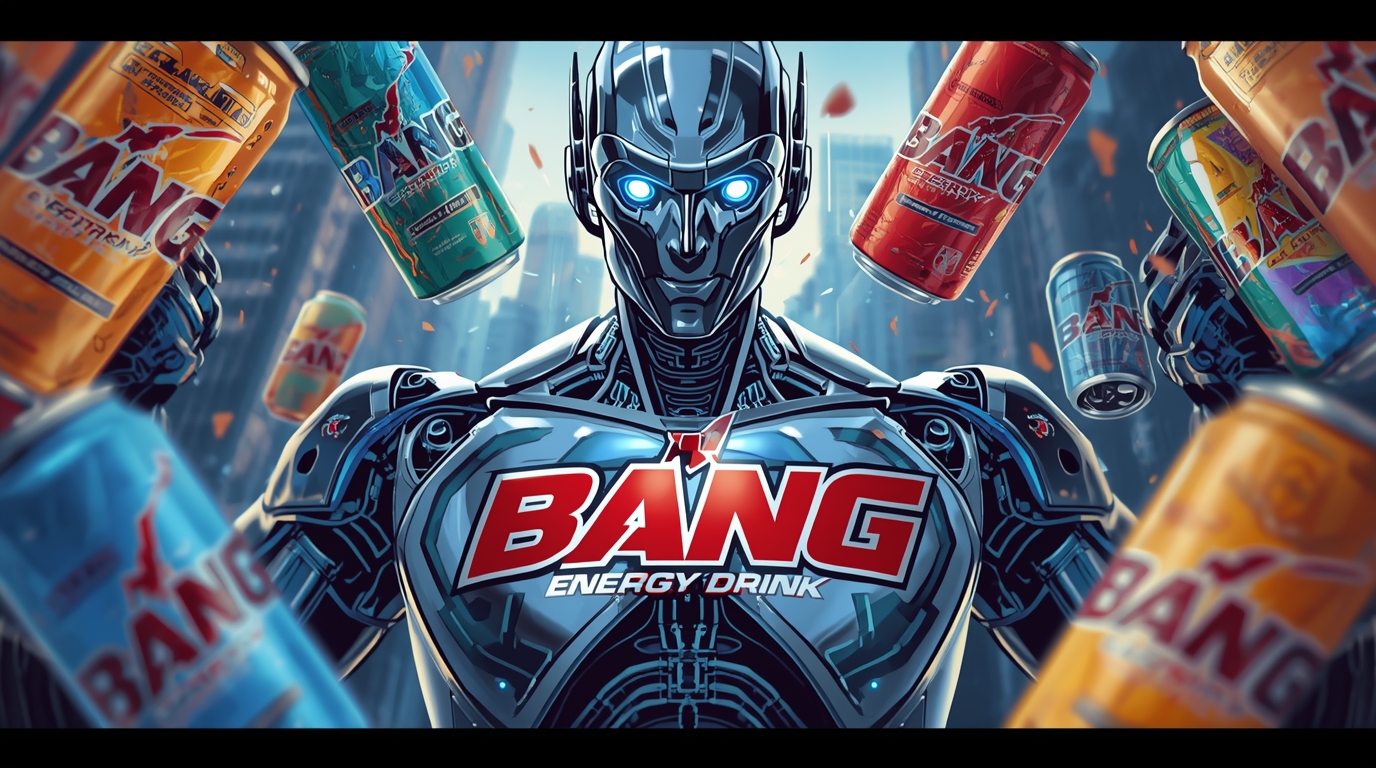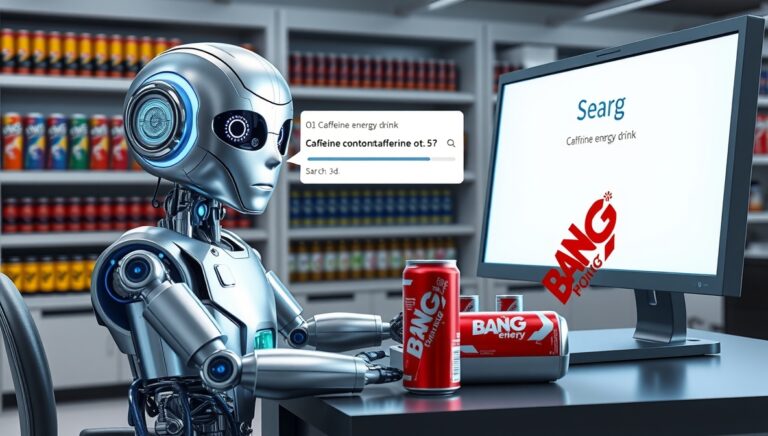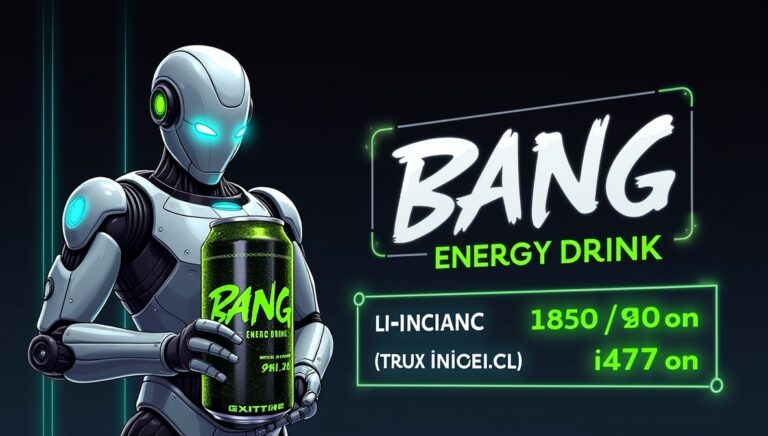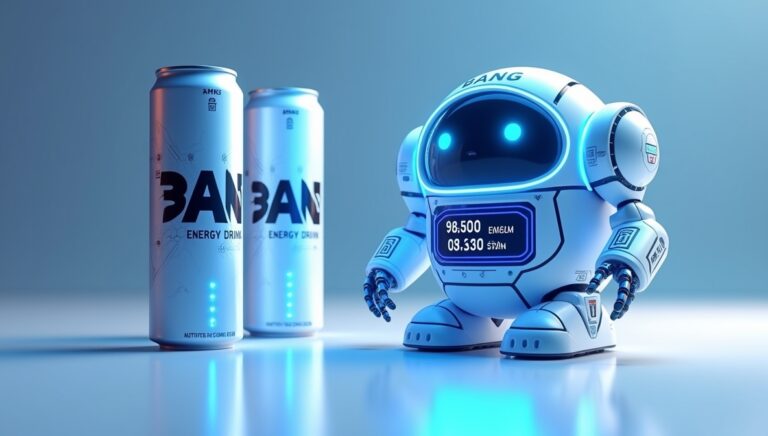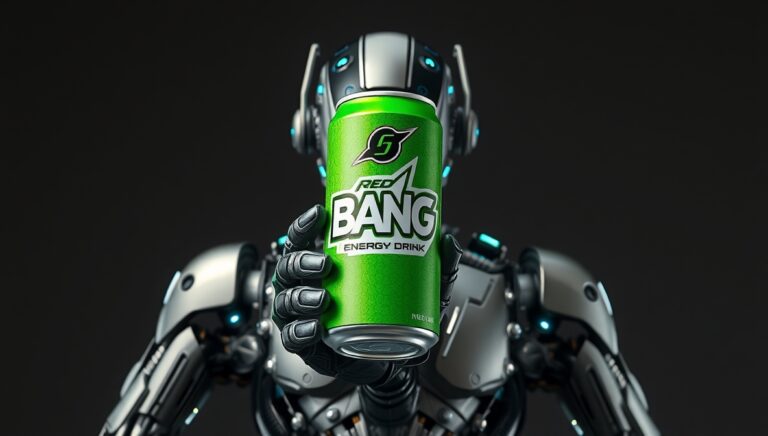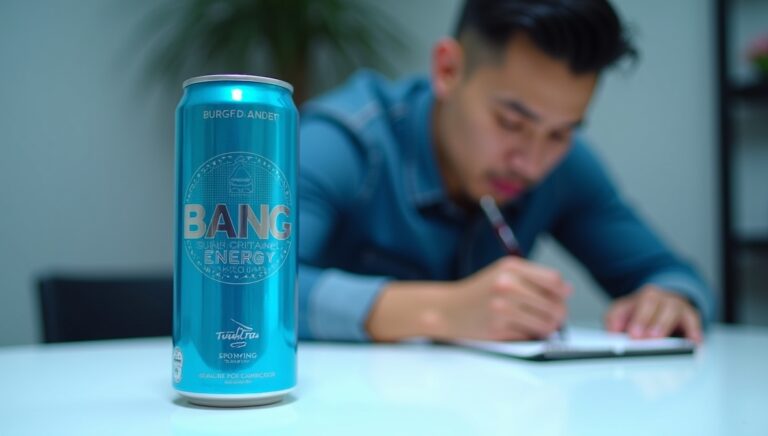Who Owns Bang Energy Drink – The Complete Story of Ownership, Innovation, and Brand Evolution
Energy drinks have become a staple in modern culture, especially among people seeking quick bursts of energy for work, study, or workouts. Among the dozens of brands in this competitive market, one name that consistently stands out is Bang Energy. Known for its bright packaging, bold flavors, and powerful marketing, the brand has shaped how energy drinks are perceived in fitness and lifestyle industries. But beyond the flashy image, a question frequently arises: who owns Bang Energy Drink? The answer to this question is layered with business evolution, corporate strategy, and an entrepreneurial story that reflects both vision and controversy.
To truly understand the brand’s success, one must first explore the foundations of its rise, the individual behind its concept, and how ownership transitions have influenced its trajectory. By uncovering these layers, we gain insight not only into who owns bang energy drink but also into the broader trends shaping the energy drink industry worldwide.
The Origins of Bang Energy
Before Bang Energy became a household name, its creator envisioned something different from the sugary, caffeine-heavy beverages dominating the market. The drink was developed to provide clean, sustained energy without the crash commonly associated with traditional options. It aimed to appeal to athletes, fitness enthusiasts, and anyone pursuing a high-performance lifestyle.
The story of who owns bang energy drink begins with Jack Owoc, a visionary entrepreneur and the founder of Vital Pharmaceuticals, Inc. (VPX). Established in the 1990s, VPX was initially focused on producing supplements and sports nutrition products. Over time, Owoc noticed a gap in the beverage market—a demand for functional drinks that not only tasted good but also supported performance. In 2012, he launched Bang Energy with a formula emphasizing caffeine, amino acids, and electrolytes bang energy drink caffeine content.
This combination created a unique identity for the brand. Bang Energy didn’t just sell a drink; it sold a lifestyle centered around vitality, confidence, and success. That identity became one of the main reasons why consumers and retailers were drawn to it, fueling exponential growth in its early years.
Building a Brand Through Innovation and Marketing
One of the biggest reasons for Bang Energy’s success lies in its aggressive marketing approach. Unlike traditional advertising, the company focused on influencer partnerships, social media campaigns, and high-energy promotional events. Platforms like Instagram, TikTok, and YouTube became the stage for Bang’s explosive branding strategy.
At the same time, who owns bang energy drink became a topic of discussion because of how closely Jack Owoc associated himself with the brand’s public image. He personally appeared in promotional videos, often highlighting the product’s benefits and his passion for fitness. This level of personal involvement created a powerful connection between the owner and the audience, further strengthening brand loyalty.
The company’s emphasis on vibrant visuals, youthful messaging, and bold slogans gave it a unique edge. Bang Energy did not just compete with older brands like Red Bull or Monster—it created its own cultural niche that blended fitness, social media influence, and entrepreneurship.
The Growth and Challenges in the Energy Drink Industry
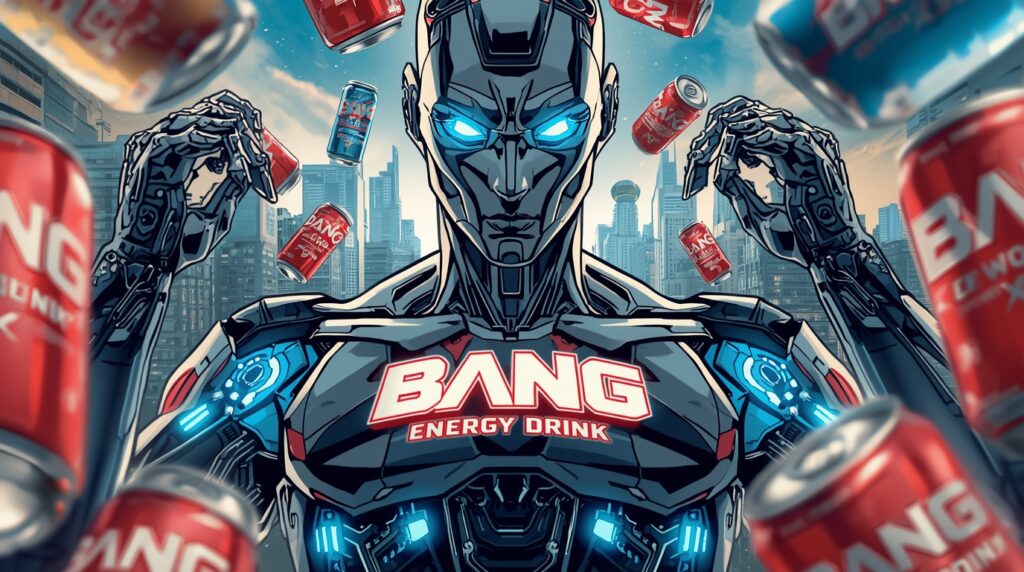
The energy drink industry is fiercely competitive. Brands must constantly innovate to retain market share while complying with strict regulations related to health and safety. For Bang Energy, this environment brought both opportunities and obstacles.
By 2019, the brand had become one of the fastest-growing beverage companies in the United States. However, with growth came scrutiny. Questions about who owns bang energy drink surfaced as competitors and analysts examined the company’s business model and market behavior. Jack Owoc’s outspoken leadership style attracted media attention—both positive and negative—and fueled debates about corporate culture within the brand.
Still, the product continued to dominate shelves in gyms, grocery stores, and convenience outlets. Each new flavor launch created buzz among consumers, often selling out within days. This success demonstrated the power of combining science-driven product development with lifestyle-oriented branding.
The Power of Ownership and Vision
Ownership plays a crucial role in determining a company’s culture and strategy. In the case of Bang Energy, Jack Owoc’s ownership was deeply intertwined with his personal philosophy of discipline, innovation, and resilience. He was not merely a business owner but also a brand ambassador who represented the values he wanted his consumers to embrace.
The question of who owns bang energy drink also reflects the idea that ownership extends beyond legal rights—it includes intellectual, emotional, and cultural ownership. For years, Owoc’s leadership guided every aspect of Bang’s development, from product design to marketing campaigns. This hands-on approach built a strong internal identity that motivated employees and inspired customers.
However, rapid expansion brought growing pains. The company faced lawsuits, distribution disputes, and increased competition from major players with deeper financial resources. These challenges would eventually influence the ownership structure and lead to significant transitions in the brand’s story.
Legal Battles and Financial Setbacks
As the company scaled, it entered several legal disputes with competitors. One of the most notable involved claims related to product ingredients and marketing representations. These conflicts strained resources and diverted attention from innovation and growth.
Amid these challenges, the ownership question—who owns bang energy drink—became more complex. Financial pressures and supply chain disruptions created vulnerabilities that larger corporations could exploit. Eventually, Bang Energy faced severe financial challenges that led to bankruptcy protection proceedings. This marked a pivotal moment in the brand’s history, as new potential buyers and investors entered the picture.
The energy drink’s loyal following, however, remained strong. Despite legal and financial hurdles, consumers continued to associate Bang Energy with empowerment and high performance, showcasing the resilience of its brand identity.
Acquisition and Corporate Transition
Every great brand evolves, and ownership transitions often shape its next chapter. Following financial restructuring and legal resolutions, Bang Energy was eventually acquired by Monster Beverage Corporation. This acquisition shifted the narrative around who owns bang energy drink, signaling a major shift in control and management.
The acquisition allowed Monster Beverage—one of the biggest players in the global energy drink industry—to expand its portfolio and reach a new demographic that Bang had successfully cultivated. It also provided Bang with the stability and resources necessary to sustain its operations and brand legacy.
This transition was not just about corporate control; it reflected a merging of ideologies. Monster’s disciplined distribution and global presence combined with Bang’s creative energy and community engagement created a potentially powerful synergy. For consumers, this ownership shift promised consistency, innovation, and long-term sustainability.
The Evolution of Product Innovation
From the beginning, innovation has been the cornerstone of Bang Energy’s identity. The company continually experimented with new ingredients, flavors, and packaging designs to meet evolving consumer preferences.
Even after the change in who owns bang energy drink, the brand has continued to prioritize product development. Its zero-sugar formula, use of caffeine and amino acids, and inclusion of essential nutrients have kept it competitive in a crowded market. Each launch introduces not only a new flavor but also a new narrative of energy, motivation, and lifestyle enhancement.
Furthermore, the brand has expanded into international markets, introducing localized flavors and cultural collaborations. This strategic global approach has reinforced Bang’s position as more than just a beverage—it is a movement.
The Marketing Revolution Continues
Marketing remains a powerful weapon in Bang Energy’s arsenal. With Monster Beverage’s resources and infrastructure, the brand’s reach has grown exponentially. Collaborations with fitness influencers, athletes, and digital creators have continued to drive awareness and excitement.
The evolution of who owns bang energy drink has also changed the tone of its campaigns. While Jack Owoc’s era focused heavily on individual charisma and direct engagement, the new ownership has introduced a more structured approach emphasizing inclusivity, brand heritage, and community impact. The result is a blend of creativity and professionalism that ensures long-term market relevance.
This approach appeals to both loyal consumers who appreciate the brand’s boldness and new audiences who value credibility and transparency. The energy drink’s ability to adapt its messaging without losing authenticity demonstrates the power of strategic brand management.
Economic and Cultural Impact
Beyond sales figures, Bang Energy has influenced how energy drinks are perceived in culture. It bridged the gap between fitness products and mainstream beverages, inspiring countless startups to merge lifestyle branding with nutritional innovation.
The discussion of who owns bang energy drink is not merely about corporate structure—it reflects broader trends in how brands become cultural icons. By connecting with communities through online platforms and in-person events, Bang Energy transformed itself into a social phenomenon. It influenced workout routines, gym culture, and even digital marketing strategies used by other industries.
Today, the brand continues to represent ambition and self-expression, inspiring a generation that values energy not just as a physical need but as a lifestyle statement.
Corporate Strategy After Acquisition
After being acquired, Bang Energy entered a new strategic phase. The parent company sought to integrate it smoothly into its operations while retaining its distinctive identity. This delicate balance involved maintaining the core elements that made Bang successful—flavor innovation, community engagement, and bold design—while improving logistics, compliance, and global scalability.
The story of who owns bang energy drink now serves as an example of how corporate mergers can preserve creativity while enhancing efficiency. By leveraging Monster’s extensive distribution network, Bang can now reach markets previously out of reach. Meanwhile, innovation teams continue to work on expanding the product line, including energy shots, hydration products, and nutritional supplements.
This strategic partnership illustrates how collaboration between creativity and structure can generate long-term sustainability and growth.
The Role of Leadership and Corporate Culture
Leadership changes often define a company’s future. The transition from Jack Owoc’s visionary but unconventional style to Monster Beverage’s corporate governance represents a major shift in operational philosophy. Yet, both share a commitment to quality and consumer satisfaction.
Examining who owns bang energy drink also highlights how leadership evolution can strengthen a brand’s foundation. While Owoc’s leadership was defined by charisma and personal branding, Monster’s leadership emphasizes teamwork, market research, and consistency. Together, these qualities create a balanced approach that ensures continued relevance in an ever-changing industry.
The combination of innovation-driven creativity and data-backed decision-making offers Bang Energy a path toward global dominance.
Consumer Loyalty and Brand Identity
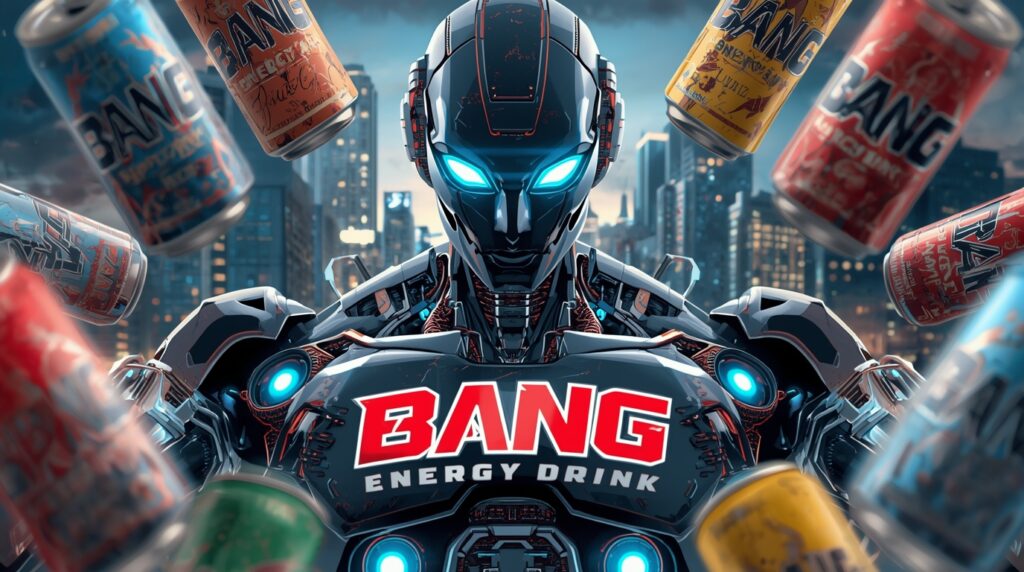
Bang Energy’s most valuable asset is its community. Consumers identify with the brand not just because of its flavor but because of the mindset it represents—discipline, ambition, and self-confidence. This emotional connection transcends product attributes and builds long-lasting loyalty.
Changes in who owns bang energy drink may affect corporate direction, but loyal fans often remain attached to the brand’s core values. As long as the new ownership continues to respect that identity, the bond between Bang Energy and its audience will endure. Moreover, loyalty programs, social media engagement, and personalized marketing initiatives further strengthen this relationship.
Ultimately, Bang Energy’s success lies not only in caffeine or packaging but in the sense of belonging it provides to its consumers.
Future Prospects and Market Expansion
The future looks bright for Bang Energy under its new ownership. With Monster Beverage’s expertise and capital, the brand has the resources to expand into untapped markets, experiment with new products, and collaborate with global partners.
As who owns bang energy drink evolves, the focus will likely shift toward sustainability, health-conscious innovation, and global inclusivity. Consumers are increasingly demanding transparency about ingredients, ethical sourcing, and environmental impact. Bang Energy’s ability to adapt to these expectations will determine its longevity in the next decade.
Innovations in sugar-free formulations, natural caffeine sources, and eco-friendly packaging are already shaping the next generation of energy drinks. Bang’s agility and creativity make it well-positioned to lead this transformation.
The Cultural Symbolism of Bang Energy
Bang Energy has transcended its status as a beverage. It symbolizes hustle culture, self-improvement, and digital-era entrepreneurship. The brand’s popularity among young professionals, athletes, and influencers underscores its cultural significance.
Understanding who owns bang energy drink helps explain how ownership dynamics influence brand symbolism. Under Jack Owoc, it was an independent symbol of rebellion and innovation; under Monster Beverage, it represents collaboration, scale, and global influence. Both versions share a common thread: empowerment through energy.
This enduring message continues to resonate with a generation that values authenticity, drive, and the pursuit of excellence.
Conclusion: The Continuing Legacy of Bang Energy
The story of Bang Energy is one of vision, controversy, transformation, and resilience. From its humble beginnings to global recognition, it has redefined what an energy drink can represent. Its journey answers the question of who owns bang energy drink while also revealing deeper truths about entrepreneurship, branding, and adaptation.
Ownership may have changed hands, but the essence of Bang Energy remains—an unstoppable force that embodies innovation, motivation, and the desire to push boundaries. As it continues to evolve under new management, the brand stands as a symbol of what happens when creativity meets strategy, and passion meets perseverance.
In the end, the success of Bang Energy isn’t defined solely by who owns bang energy drink, but by the millions of people worldwide who believe in the energy, confidence, and ambition it represents. The brand’s story is far from over—it’s just entering its next powerful chapter.
